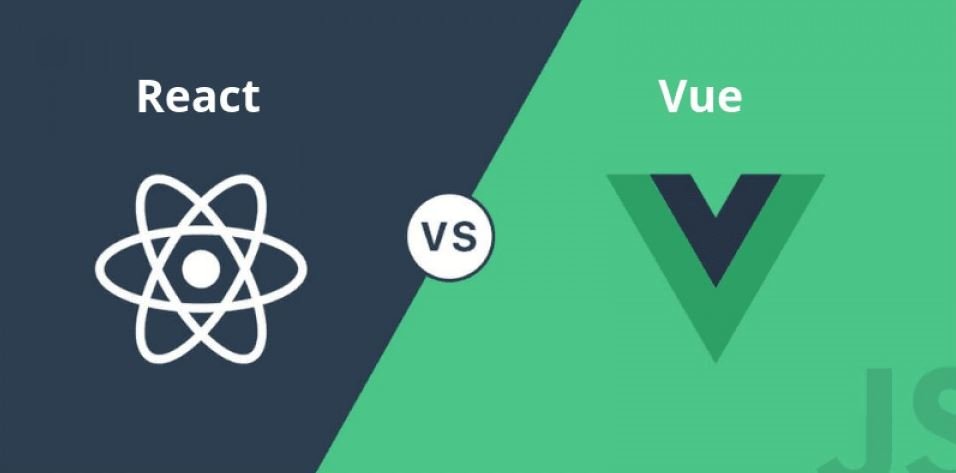Vue.js Vs React

When it comes to JavaScript frameworks, Vue.js and React are two of the most popular choices among developers. Both frameworks have gained immense popularity in recent years due to their flexibility, efficiency, and large communities. In this blog post, we’ll compare Vue.js and React across several key factors to help you make an informed decision about which framework is the best fit for your next project.
Performance and Speed:
Both Vue.js and React are designed to be highly performant, but they approach performance optimization differently. Vue.js utilizes a template-based rendering system and leverages a fine-grained reactivity system, resulting in efficient updates to the DOM. React, on the other hand, uses a virtual DOM, which optimizes rendering by only updating the necessary components. While React’s virtual DOM can be more efficient for complex applications, Vue.js often performs better in smaller projects.
Component-Based Architecture:
Both frameworks follow a component-based architecture, allowing developers to create reusable and modular components. Vue.js uses Single File Components (SFCs), which encapsulate the template, JavaScript, and CSS in a single file. React separates concerns by using JSX to define components’ structure and behavior, with CSS often written in separate files. This distinction is primarily a matter of personal preference, with Vue.js offering a more cohesive and compact approach.
Ecosystem and Community Support:
React has a vast ecosystem with numerous third-party libraries, tools, and extensive community support. It is backed by Facebook, ensuring regular updates and improvements. Vue.js also has a thriving ecosystem and an active community, but it may not offer the same depth as React. However, Vue.js emphasizes simplicity and provides official tooling that makes getting started and building applications a breeze.
Integration and Adoption:
React’s popularity has resulted in widespread adoption, making it a preferred choice for many large-scale projects. It integrates seamlessly with various tools and libraries, such as Redux for state management. Vue.js, while gaining momentum, is still catching up in terms of widespread adoption, but it offers excellent integration with tools like Vue Router and Vuex for state management. Consider the existing tech stack and community support when choosing between the two.
Documentation and Learning Resources:
Both Vue.js and React provide comprehensive documentation and learning resources. React’s documentation is extensive and highly regarded, while Vue.js has well-organized documentation that covers all the essential aspects. Both frameworks have a vast collection of tutorials, articles, and video courses available online, making it easier for developers to learn and troubleshoot.
Conclusion: Choosing between Vue.js and React depends on various factors such as project requirements, team expertise, and personal preferences. Vue.js is an excellent choice for beginners or developers seeking simplicity, while React offers a more powerful and flexible solution with a larger ecosystem. Consider the learning curve, performance needs, community support, and integration possibilities to make an informed decision. Ultimately, both frameworks are solid choices, and your decision should be based on the specific needs of your project. Happy coding!